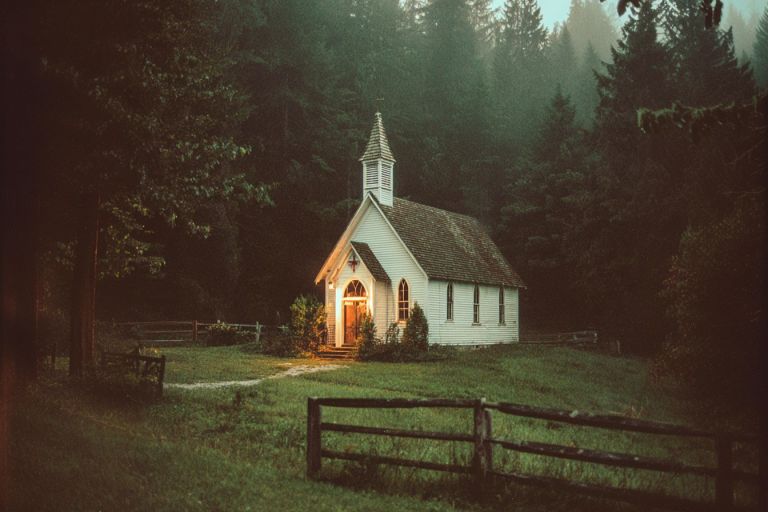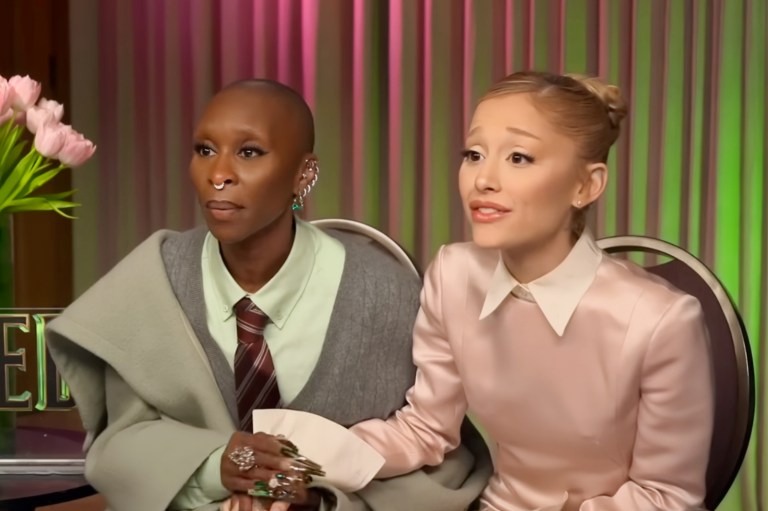
Why We’re Obsessed With Romantic Love And Why It’s Dangerous
Our expectations today are at an all time high, and our patience at an all time low.
We are lead to believe as a society that our personal happiness relies heavily on the pursuit and acquisition of romantic love. This is meant to give our lives meaning and stability in a world where uncertainty reigns supreme. Finding a perfect partner to spend time with, whether it be a clandestine holiday romance or a person to grow old with, however, tends to elude us. If you think this is because you haven’t searched far or wide enough, think again. Our expectations today are at an all-time high, and our patience at an all-time low. So why is it that we search for something that might not exist? And how have we come to this place, where our relationship ideals are so high, and our needs are just not being met?
The Way We Look at Marriage Has Changed
Relationships over time have changed. And before you get funny about the word “marriage” let’s not forget that once in the not so distant past, the idea of sex out of wedlock was reserved for floozies and prostitutes.
In the Stone Age, “pair-bonding”, as it was called then, was a way of ensuring a secure environment to propagate the species and raise children, as well as control sexuality.
Polygamy was the norm in most cultures right up until about 4000 years ago, when the tide started to turn in Mesopotamia, Egypt. Though they too, saw it as the essential step in ensuring stability, and it looked nothing like it does today.
Following a proposal, a marriage contract was written and a ceremony held in which a dowry was passed down. Potential brides in Babylon would often be auctioned at “The Marriage Market” as goods or slaves, and this is how most marriages were arranged: based on the girls’ bodies, looks and how well their families could sell them.
In fifth-century Rome, marriage was elevated to a holy union by the Catholic Church. However, marriage and passion were seen as incompatible with one another, and by the 12th and 13th centuries, the European aristocracy viewed extramarital affairs as the height of romance. French philosopher Montesquieu famously said “a husband who loves his wife is a man who has not enough merit to engage the affections of some other woman”.
It wasn’t until the 17th or 18th century that romance came into the picture for our marital unions. Until then, it was seen as an economic institution, largely motivated by the woman’s’ ability to look after the household whilst the men went off dallying around in the pursuit of the fairer things in life whilst bringing home the proverbial bacon.
Enlightened thinkers of this era pioneered the idea that life was meant to be lived in the pursuit of happiness, and men were encouraged to marry for love.
By the 19th century, men were able to pay for a wedding and select their own spouse, bolstered by the Industrial Revolution. This gave them an extra independence from parental intervention and reliance.
Women only began to demand themselves as equal to men in the 20th century, and until then they were seen as subordinates at best, and property at worst. As divorce became commonplace and women rose up in their own rights and identity, men and women were able to come into marriage both seeking an opportunity for mutual gain.
This meant, that up until only some 60 years ago, men and women were able to satiate their needs outside of marriage. If they needed connection, a hand to hold, someone to talk to, a best friend, a medicine woman or man, a feeling of being part of a community; they rarely got this from their spouse. Their part as a union in the eyes of what would now be considered a very small community, went as far as economic and propagative alliance.
Esther Perel, a famous psychotherapist and author, said in her 2013 TED talk “The Secret to Desire in Long-term Relationships”, that we now come to one person to give us what once an entire village used to provide.
Where we once looked for solidarity, we now look for comfort, continuance, familiarity, as well as novelty, change, adventure and vibrancy. Our expectations for relationships have evolved to become extremely particular and demanding, often forgoing self-awareness and self-soothing in order to make those requests from a significant other.
The Way We Meet Each Other Has Changed
In the book Modern Romance: An investigation by Aziz Ansari and Eric Klinenberg, they statistically show the way in which we used to meet and choose a spouse, based on where we lived and the community that we lived in.
Based on statistics drawn from 5000 Philadelphia marriage certificates that were examined by sociologist James Bossard in 1932, the statistics show something not entirely surprising but very interesting. More than one in two individuals in the 1930’s were likely to marry a partner within ten blocks of their own dwelling. More than one in six didn’t even have to cross the road to find the partner they decided to spend the rest of their lives with.
In the article “How Intimate Relationships Have Changed and Where Does that Leave us Now?“ by Damon Ashworth, he says, “in a study looking at how Americans met their spouses between 2005 and 2012, Psychologist John Caccioppo found that more than one-in-three married couples met online, which was more than work, friends and a bar or club combined.”
“All of the recent advances in technology, especially the internet and smartphones, really has changed the dating scene dramatically, including how we meet, who we meet, how many potential partners we can meet, and even how we communicate with each other.” He follows that later with, “no longer do people settle just settle for companionship or what is good enough. We also want passion and the perfect life partner who completes us, gives us belonging and identity, mystery and awe, and makes us happy. Some people even declare that they are looking for their soulmate, and refuse to settle for anything less.”
The problem with this, of course, is that with so many choices at the swipe of a button with the massive increase of technology over the years, we are paralyzed by choice. We have so many options and so many expectations that we lack the discerning temperament of the ones who came before us. We want a movie romance, a perfect partner, a cookie-cutter soul mate who we can project all our wants and needs onto, with the expectation that they will fulfill this, just like the media suggests in the material we are inundated by daily.
Media Influences Our Choices
As a late eighties child myself, I can tell you without a blink in of an eye that my favorite childhood movie was The Little Mermaid. I not only watched this with avid attention, but I also inundated my parents viewing platform with movies like Beauty and The Beast and Snow White and The Seven Dwarves. All of these movies have sprung from very different origins and their narratives have changed over time and the original fairy tales, written by The Brothers Grimm and Gabrielle-Suzanne de Villeneuve, depict some seriously disturbing content.
You don’t have to be a genius to really look at my childhood movies and see that their premise is setting children up for a confusing time. In Beauty and the Beast, Belle presents outwardly with clinical definitions of Stockholm Syndrome. This is not even taking into consideration the crossover of interspecies romance. Snow White blurs the definition of consent and glorifies necrophilia. The Little Mermaid preaches that you should go to extreme measures to be someone you’re not. Also, inter-species again.
As a result, not only did I learn growing up that you should be quiet to make boys that you’ve fallen in love with after two minutes like you, I also learned that it is important to be “chosen” and saved by a man. I learned that had to be pretty to be truly seen, and that consent didn’t matter if the guy was rich and handsome. There are so many other messages within our childhood movies that have subversively influenced our narratives, but for now, let’s have a look at what media is telling us in the present.
In box office smash-hit films like the Twilight Trilogy or Fifty Shades of Grey, we have come to expect maladjusted behaviors as the ideal. I don’t care how hot they are, Edward and Christian outright stalk the female protagonists in a super creepy way. Both Christian and Edward break into the houses of the object of their fixations, which does not say much for consent. They are both rich and handsome, and this seems to exempt them from what is ideally considered as respecting personal boundaries.
In Twilight, we again see this strange interspecies love triangle between Bella, Edward and Jake, who is only released from his obsession with Bella when he imprints on her infant child, and is now bound to her for life, in any capacity that she needs, assuming that he will marry her when she is old enough. Not creepy enough?
Christian Grey outright admits to his sadism and expects Anna to conform to his contractual desires. The book also assumes that Grey’s violence and sadism isn’t really his fault, as he was abused as a child. He is a broken man who needs to be fixed by “the right woman”. Enter Anna, stage left.
It also gives audiences who are not familiar with BDSM a very dangerous view of the industry, leading to outcries of misrepresentation.
All of this flows into a false idea of masculinity. The assumption that men must be powerful, rich and not take “no” for an answer features heavily in a lot of these narratives. It separates the two spheres of femininity and masculinity, where a woman is naive and virginal, and the men have great significance in their society. They will provide financial stability but lack character in the adaptations of fairy tales, and are ambitious and reckless with boundaries and consent in more modern films.
Let’s talk about Sex and the City, where Carrie chases after a man that cannot make up his mind. Or How to Lose a Guy in Ten Days where Andie behaves incredibly badly and somehow manages to win the guy over with a series of truly maladjusted and unrealistic behaviors.
And let’s also talk about a world-wide favorite, The Notebook. I loved this film when it came out and it still makes me cry today, but what is it teaching us? Noah becomes romantically obsessed with Allie, and when she says “no”, he threatens to take his life. He completely disrespects her boundaries and consent.
When she leaves, in her absence he writes her a letter every day for a year. Following that, he refurbishes the house he took her virginity in, and somehow that leads them back together to have a bunch of babies and live happily ever after.
Speaking of which, all our lives, in the movies and books we treasure, we are mostly told that “happily ever after exists” and we just have to find the right soul mate to come together with, no self-analysis or work needed, just the belief that love alone, is enough.
Social media provides a wonderful platform for us to connect with others. Bumble alone has 40 million users, according to the DMR statistics. Tinder has an estimated 50 million. On Instagram and Facebook we can handpick the highlights of our lives, posting and hoping for the click of “likes” and social notoriety across the world with people we don’t really know. We are living in a society that glorifies our online persona, and when the veil falls, we are disappointed in what we find. When we are faced with another’s flaws, instead of working through them and learning better conflict resolution and communication, we can easily grab our phones and swipe ourselves a new person to project onto.
We learn less about self-soothing and introspection when refuse to take anything less than ‘the best”. Now, I’m not saying we should all go out and settle for the next man to slide into our DM’s or look at us in the fruit aisle, I’m just pontificating the need to look closer at ourselves. Are our desires for our relationship really something that we need from another person? My friend Brittany and I developed an exercise where you write down the things you want from a potential relationship. The question that follows is, “are any of those characteristics things that I can develop within myself? Am I looking for someone to satisfy my shortcomings?” For example, if you want someone financially stable and dependable, is it because you are not those things yourself? When we search for another person, it’s a dangerous road to go down hoping for someone to “complete us”.
We are looking less to our friendships and family to fulfill our emotional needs, as once was more commonplace when marriage was known purely for economic gain. Coupled with our voraciousness for the glitter and subversion of social media, we expect our partners to fulfill a lofty list of requirements that we project onto our significant other. We tend to shunt our communities as the underlying support for emotional needs in lieu of our newest infatuation.
So, What Now?
If all of this sounds like we’re screwed, you’re right. We are. Just kidding.
In a world where we are constantly looking for another person to satisfy our wants and needs, we need to look to our communities and ourselves for support and empathy.
Studies show that our real-life conversations are the ones that foster deep and meaningful connection. Robert Kraut and his colleagues in their 1998 paper, “The Internet Paradox” referred to how the increased connectivity made possible by technology counter-intuitively reduced social involvement, increasing loneliness. Real-life conversation denotes empathy and understanding, which you can only have if you put down the smartphone and sit down with your friends and family.
Not only that but the most important thing to take away from this is our need to become independent within our sense of self. To learn what it is to foster a self-love that is unswayed by popular opinion.
Our identity has been challenged daily forever by our peers, but now more than ever with the world at our fingertips. We need to work on what our deep values are, and live up to them, looking not to material things to validate our sense of self. Whilst our jobs provide us with income and a certain type of meaning, we must look further inward, towards what we consider the negative parts of ourselves as well. Who we are as a whole, if known, will provide us with a consistent platform to build and foster partner communication on. Coming into a union with a defined sense of self and an ability to be vulnerable about your shortcomings, will undoubtedly lead you to make a more informed choice for a partner. This is because you are aware that you are not perfect, and are less likely to seek perfection in another. Writing just 20 minutes a day will increase your self-awareness by a significant amount, whilst meditation is known to improve a monumental amount of things including a sense of self, independence, self-confidence and even fear of death.
This might also be the time to mention that our needs are paradoxical. Esther Perel, in her book “Mating in Captivity” talks of the two opposing forces: freedom and comfort. We look to fulfill both these things, and whilst it is possible to have both these needs satisfied in a relationship, it requires deep conversation, understanding, empathy, and most important, patience. The internet has given us almost everything at the click of a button, but it hasn’t given the ability to sit and empathize with our partners. To accurately perceive what is our projection and what is their true identity. Taking time to experience the infatuation and then get down to the gritty task or recreating it when the relationship energy dances away.
Relationships are work. This is the reality of it.
If you and your partner are willing to discover yourselves together under the new lens of every day, you are in for a life-altering experience. But perhaps the most important relationship that is needed in order to find this partner, is yourself.
Recognize your mission statement for life, talk to your friends about something other than each other, and take the time out of your days to truly work out what it is that you want, and what you are perfectly capable of giving yourself. You need not look any further for that truly deep acceptance. You have everything you need right here. ![]()











